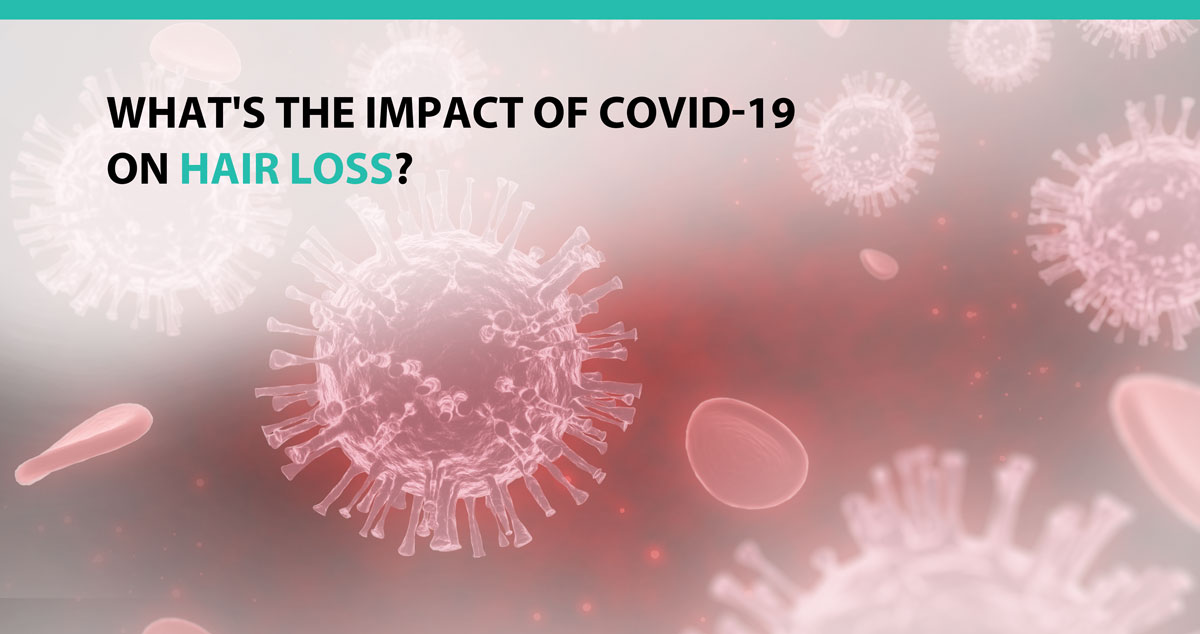
COVID-19 patients exhibit various symptoms. Although scientists are still studying the disease, recovering patients are increasingly reporting hair loss as one of its effects. What we know for sure is that fever is an essential symptom of the coronavirus. It’s not uncommon for people who suffered high fever during illness to experience hair loss months after recovery. This hair shedding is known as telogen effluvium.
The Telogen Effluvium (TE) Mechanism
If you suddenly start noticing your hair falling out in clumps while showering or brushing, it’s most likely TE. It occurs when a stressor interrupts your hair growth cycle and forces it into a resting phase. The shedding starts two to six months after the trigger event.
That’s why COVID-19 patients experience hair loss even after making a full recovery. Your body doesn’t get permanent immunity after recovery. It’s possible to either get reinfected or deal with stressful long-term effects. They include fatigue, headaches, intermittent fever, depression, and muscle pain. Others are renal, respiratory, neurological, cardiovascular, psychiatric, and dermatological issues.
Ongoing Research On COVID-19-Related Hair Loss
COVID-19’s inconsistency makes the condition hard to understand. According to the CDC, some people return to normal health while others experience side effects for months. You might show long-term symptoms even if yours was a mild case that didn’t result in hospitalization.
Temporary hair loss is a normal process after a fever. Telogen effluvium, however, occurs when you shed hair faster than the growth cycle can replace it. The shedding phase can last up to six months before uninterrupted hair growth resumes. Because COVID-19 is just a year old, we’ll have to wait longer to know its multi-year impact on hair.
The Role of Stress in Hair Loss
You’re highly likely to experience emotional and physical stress if you or a loved one has COVID-19. Other than telogen effluvium, you can also lose hair from alopecia areata. This stress-induced condition triggers white blood cells to attack your hair follicles. In some instances, it causes hair thinning, while in others, it can result in bald patches. In extreme circumstances, you might lose hair on your whole scalp or body.
Your hair might regrow and fall out later. While doctors don’t know the exact cause of alopecia areata, research links it with stress, anxiety, and other mental conditions. You don’t necessarily have to have the coronavirus to experience stress-related hair loss. Associated events such as lonely quarantines and other containment measures have caused a rise in reported cases of hair loss. Your hair will start growing again once you manage or treat your stress.
How to Manage Hair Loss After COVID-19
Although research on a permanent solution to the pandemic is underway, you should follow safety precautions until you get vaccinated. Observe all coronavirus containment measures as outlined by the CDC and other health agencies. A recurrent infection could cause even more damage to your hair.
It’s advisable to visit a certified dermatologist if you notice a rash on your scalp or other body parts. That’s because hormone imbalances can also trigger skin problems and hair loss. Other helpful tips include following a healthy diet, including foods rich in Vitamin D and iron. Visit our practice for an exhaustive evaluation of your hair loss and recommendation of proven hair restoration procedures.
At the Advanced Medical Hair Institute, we provide comprehensive solutions to a range of hair issues. Our lead physician, Dr. Joseph Williams, has a wealth of experience and expertise in this field. His procedures restore your hairline and hair density to a natural appearance. We also invest in the latest technology to ensure our solutions are as accurate as possible. Please make an appointment today for full details.










